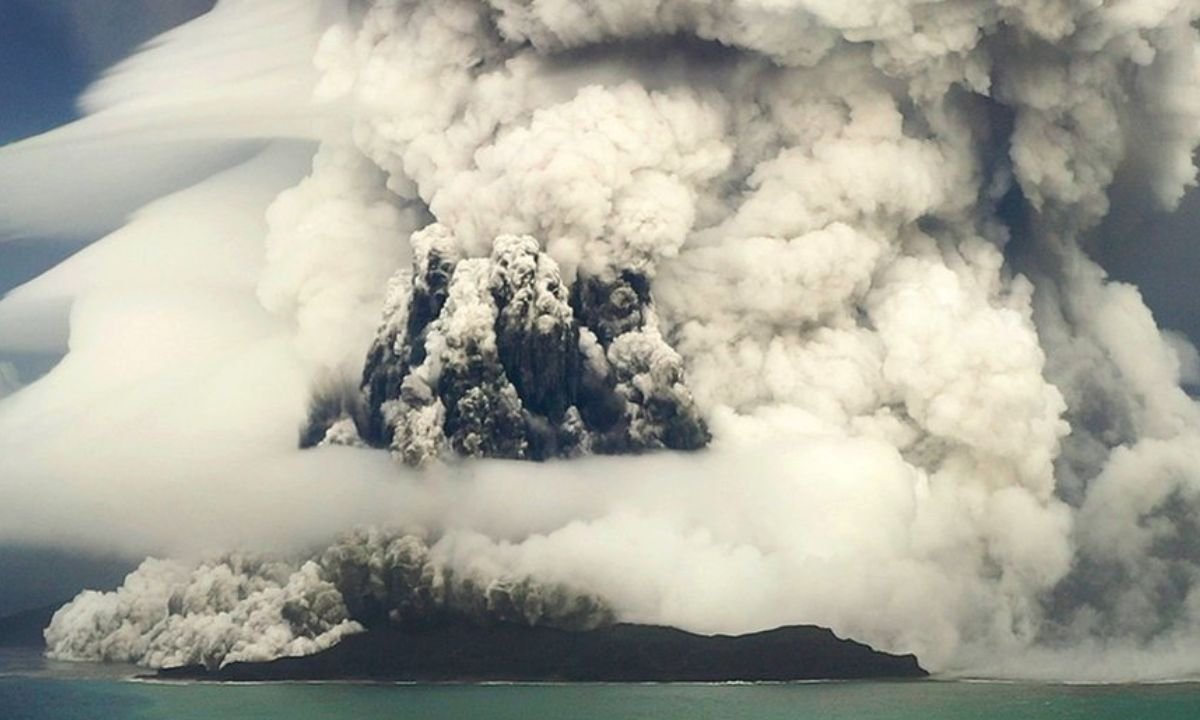Tonga volcanic eruption 2022 affecting the weather in Australia
A massive Tonga volcanic eruption which happened almost two years ago on January 14, 2022, is affecting the weather in Australia. The consequences of this eruption are still in effect over two years later.
The volcanic eruption could bring wet weather in the form of rain to the eastern parts of Australia. The 2022 eruption of the Hunga Tonga-Hunga submarine volcano generated a 15-meter-tall tsunami of fire, water, ash, and smoke. It sent major shockwaves around the world.
The fact that volcanic eruption was a massive undersea explosion. So, it erupted a massive amount of water into the atmosphere. That is why, it has the most lasting impact. In this way, the 2022 volcanic eruption is affecting the weather in Australia. It could bring heavy rains in Australia as a massive hot geyser of water went up into the air at an extremely high speed.
Scientists believe that 146 gigalitres of water went up into the stratosphere as a result of the volcanic eruption. The stratosphere is the second layer of the atmosphere as you go upward.
The released amount of water is equivalent to blasting about 60,000 Olympic swimming pools worth of water to the stratosphere and bringing more rain to Australia. It could also result in increasing sunburn this summer.
Click here to read the updates on Iceland declares state of emergency over volcanic eruption threat
How is the Tonga volcanic eruption affecting Australia?
According to scientists, some water due to the volcanic eruption reached 40 kilometers above the earth. The ozone layer exists in the Stratosphere at approximately 15-40 kilometers and protects Earth from UV radiation. UV radiation causes serious skin diseases like skin burns and skin cancer and serious health issues like organ cancer.
As a result, the prediction of heavy rainfalls could result in serious skin and health problems in Australia. Because the water went up more than 40km upward and breached the ozone layer into the atmosphere.
Water levels in the stratosphere have already risen by 10-15% after the eruption. Climate change researcher Dr. Martin Jucker said the water will stay till the end of the decade. It will have an impact for years to come.
Read More:
- Niger Fuel Tank Explosion: 48 people died after tanker-truck collision
- Jordan gunman killed three Israeli guards at West Bank border
- 30-year-old China man died from organ failure after working for 104 days
- Lamu Deputy Governor Raphael Munyua died in Nairobi Hospital
- Hillside Academy Endarasha fire outbreak killed 17 school students
- Kenyan mother donates her excess breast milk to needy newborn children
Share this content:










Post Comment